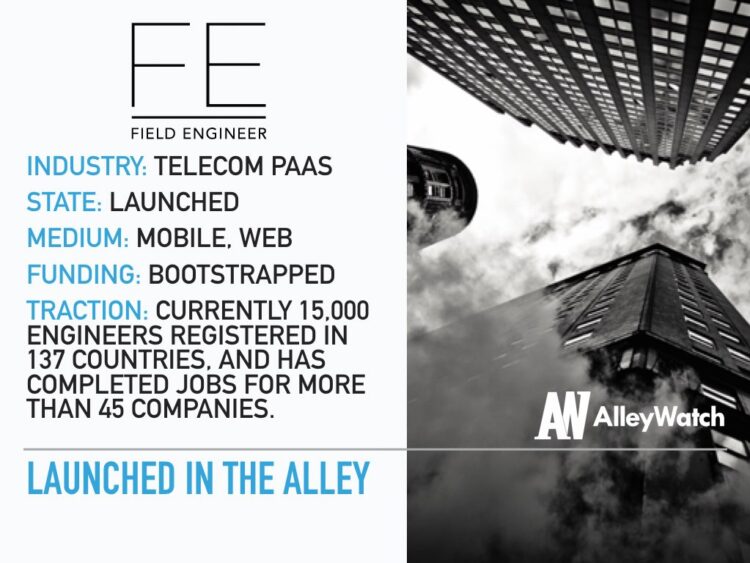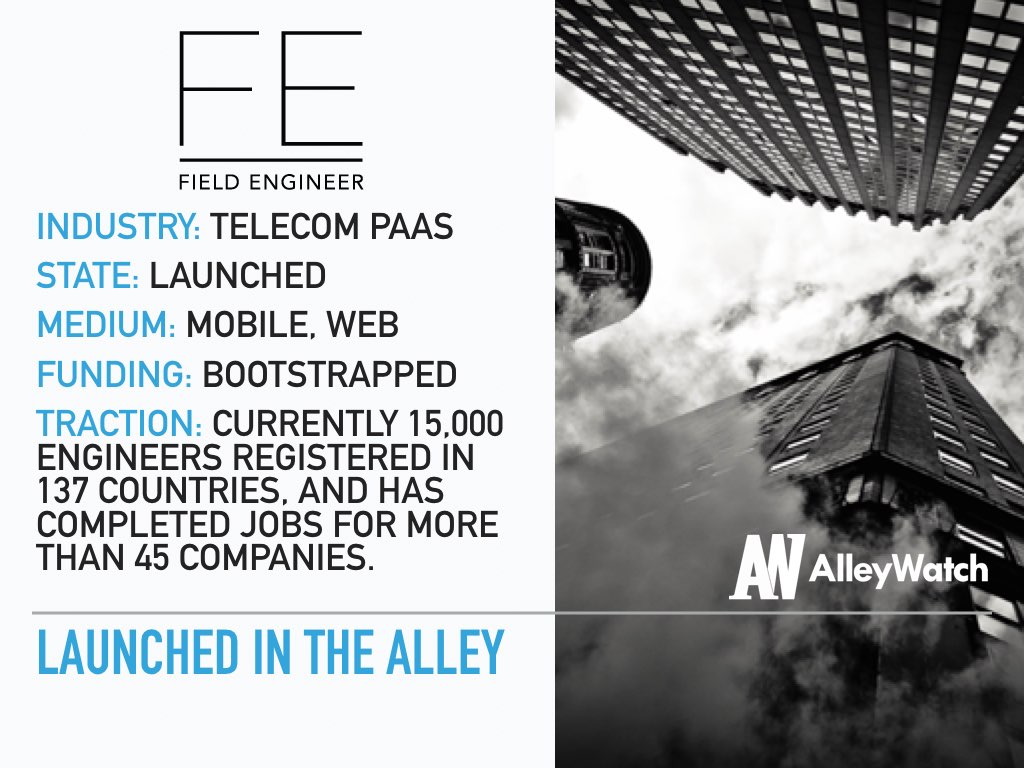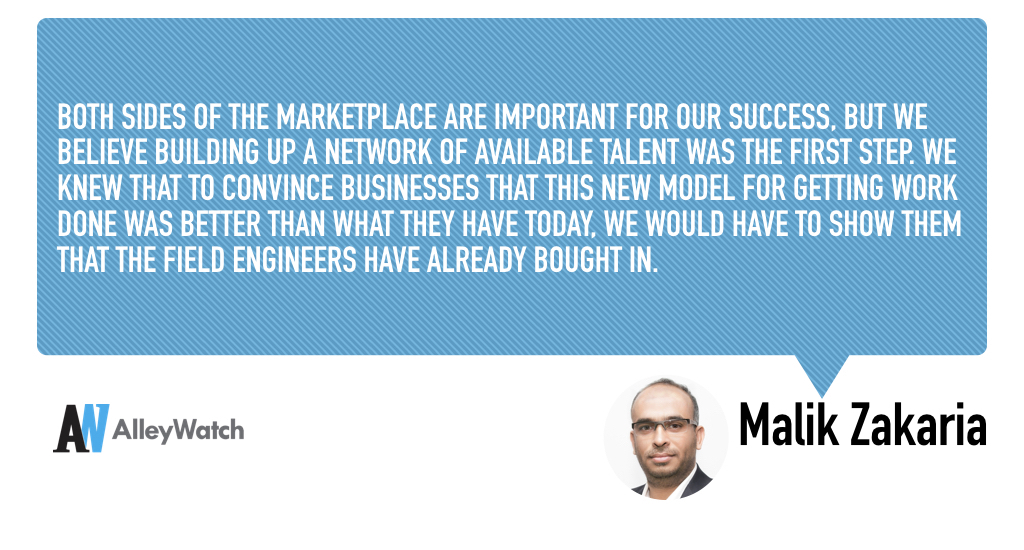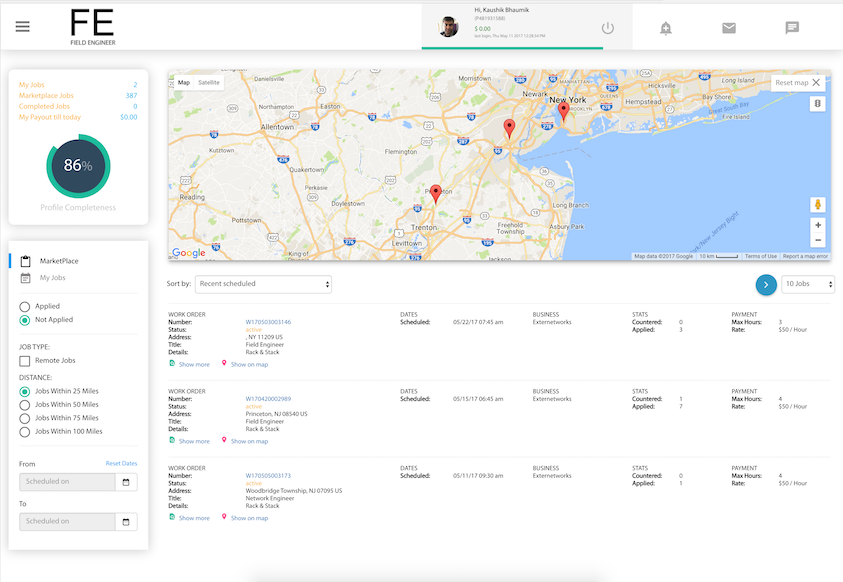Unlike any other industry, telecommunications has grown at a rapid pace and has created new jobs across the world. With these new jobs come new a breed of engineer with unique skills and specializations. This often makes it harder for engineers to apply and find jobs that appropriately suit them. With no platform currently focused on the telecommunications space, Field Engineer is filling the void. Field Engineer connects engineers with employers through its platform that understands the needs of companies as well as the engineering industry. With a global presence, real time tracking, and rapid AI matching, the service that is free to use allows you to hone in on a talent marketplace efficiently.
AlleyWatch spoke with founder and CEO Malik Zakaria about the company and how they are helping the growing engineering space.
Tell us about the product or service.
FieldEngineer.com is an online marketplace that connects companies that need telecommunications work with the field engineers who have the skills and availability to complete them. We already have about 15,000 engineers signed up for the app, and they are located in 137 countries, so it’s global.
How is it different?
The B2C world has this on-demand work thing down – TaskRabbit, for example. But B2B is different, because it’s not just the “gig” but also the specific skills people bring. Especially in the telecom space, companies have very specific requirements, including service level requirements that dictate what success looks like according to their customer’s standards. So that’s why FieldEngineer.com goes beyond being an app for the gig economy and focuses on addressing what we call the experience economy, and for the telecom space. We offer a new model for B2B work that brings together capable individuals with the companies that have work to do.
What market are you attacking and how big is it?
Broadly, we’re part of the telecommunications industry. But in reality, we’re creating a new model for B2B work overall. The Bureau of Labor Statistics does not have an official number of exactly how many contract-based workers there are, but over the past 20 years, the number of workers who operate as independent contractors, often through apps, has increased by about 27 percent more than payroll employees, according to CNBC. For the telecom industry, talking about telecom companies, VARs, hardware manufacturers, MSPs and enterprise businesses who have work where some kind of communications thing needs to be setup or serviced or disconnected – the opportunity is huge.
What is the business model?
FieldEngineer.com takes a set service commission from every work order completed successfully, as well as a premium service commission from every work order completed successfully for customers who want to use our more comprehensive project management services. We’re also exploring other revenue streams – stay tuned!
What inspired the business?
With more than 20 years of experience in telecoms and IT outsourcing, I know first-hand the pain of identifying, hiring and ensuring quality B2B work. In 2015, a U.S.-based tier 1 telecom came to me while at ExterNetworks (the first company I founded). They were looking for a way to get the field resources to deliver on a new opportunity, but only had workers on the ground in the U.S. This is a problem I’ve heard time and time again – and so I knew there was a big opportunity to create a new model for how skilled B2B work gets done, especially in the telecom space.
As a two sided marketplace, has it been more difficult to attract engineer or employers to your platform?
Both sides of the marketplace are important for our success, but we believe building up a network of available talent was the first step. We knew that to convince businesses that this new model for getting work done was better than what they have today, we would have to show them that the field engineers have already bought in. With that in mind, to date, we’ve been focused on attracting engineers to our platform – and currently have 15,000 engineers registered and represent 137 countries. And even though we haven’t made a big push to attract businesses until now, we’ve already completed jobs for more than 45 different companies.
What are the milestones that you plan to achieve within six months?
By the end of the year, we hope to have 250 channel partners using the platform, along with 100,000 field engineers across 150 countries by the end of the year.
What is the one piece of startup advice that you never got?
Taking risk – only those who will risk going too far can possibly find out how far it is possible to go
If you could be put in touch with anyone in the New York community who would it be and why?
Hamdi Ulukaya, Founder of Chobani – he built Chobani purely on confidence and without having substantial money at the time.
Why did you launch in New York?
New York City is big, buzzing–and good for startups. It has been a hotbed of entrepreneurial activity since its earliest days.
What’s your favorite rooftop bar in NYC to unwind?
230 Fifth Rooftop Garden Bar






